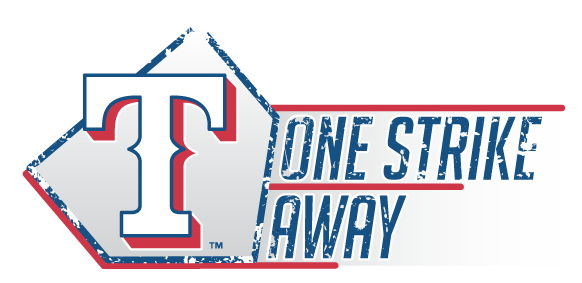Leonys Martín, Enigma
/Editor's note: This post was written before Friday night's 6-3 loss to the Royals.
Philosophically, I have a hard time putting equal stock in the numbers during such a poor, uncompetitive Rangers season. Since the end of May Texas haven't had anything to play for, and although it's unsupportable by statistical evidence -- therefore invalidating my claim -- my gut feeling is several regulars on this year's club would have superior offensive stats if the Rangers weren't so hopelessly godawful.
For those who do have something to play for, like Rougned Odor or Nick Tepesch or Shawn Tolleson, for instance, this theory doesn't apply. They take the field today to prove themselves worthy of doing the same tomorrow, and 2015, and so on. This isn't about them.
It's a defeatist perspective, sure, one we obviously wouldn't want to believe is the truth -- and it may not be for all I know -- but at the end of the day (because clichés are awesome) baseball players are human beings like the rest of us; they aren't immune to natural motivating factors that affect everybody.
I got it. See?
For the context of this article, though, I'm focusing on Leonys Martin, if for nothing else that his underachievement in 2014 has seemed to slip beneath the radar more so than other, more prominent (and well-paid) Rangers. (I'm looking at you, Shin-Soo Choo and Elvis Andrus.)
With an extreme small sample size disclaimer, over his last 31 plate appearances Martin has batted .500/.516/.533 (193 wRC+), propelling his August triple slash line up to a punchless .300/.333/.317 (74 wRC+) in 64 PAs.
(In terms of weighted runs created [wRC+], 100 is considered average. Each point below 100 is below league-average, and the further it deviates above 100 is better than league-average, and so on. A player with a 120 wRC+ is 20% better than the rest of the league, whereas a hitter with an 80 wRC+ is 20% worse, for example.)
As a minor leaguer, predominantly between 2011 and 2012, Leonys proved himself an outstanding offensive performer. At Double-A in '11 he batted .348/.435/.571, and, the following season at Triple-A Round Rock, he provided an equally (if not more) impressive .359/.422/.610 clip. Even with the expected regression that comes from jumping to MLB competition, Martín appeared to possess the pedigree to be a 4-win big league outfielder right out of the chute.
Instead, he's been nothing close. In just north of 1,000 big league plate appearances -- so we aren't talking about the typical small sample size vagaries -- spanning the last two seasons, Leonys has mustered a mere .260/.313/.375 (85 wRC+) triple slash line, showing less of an ability to make contact, get on base, or hit for much of any power. For lack of a better explanation, he simply hasn't at all resembled the player he was on the farm.
This isn't to say he's not valuable; over the last two years he's been one of the better center fielders in baseball according to the defensive metrics. FanGraphs' Ultimate Zone Rating says Martin has been +16.3 runs better than league average between '13-'14, and Baseball Reference suggests he's created +29 defensive runs saved. He patrols a premium defensive position, and he excels at it. His glove will keep him in baseball for the foreseeable future.
His bat is a problem, though, especially as we churn towards the franchise's critical 2015 season. In two full years, offensively Martin has been exposed as a platoon player.
Against righties, he's hit .277/.333/.412 (101 wRC+), a line you would take any day of the week for a plus defensive center fielder.
Meanwhile, against same-handed pitchers, the story changes; Martin has hit an abysmal .213/.256/.271 (39 wRC+).
This creates an interesting dilemma for the Rangers moving forward. While his glove is top notch -- proven by the fact that Leonys Martin has basically been a two-win player each of the last two years in spite of being a below-average hitter -- after awhile a spade is a spade. Even with the likely additions of Prince Fielder and Jurickson Profar to the 2015 roster, Texas still appear at least one bat short of being an effective offense.
Generally clubs see left-handed starters once every four games, so it's not as if the Rangers' future rides solely on Leonys Martin's ability to hit southpaws, but in an extremely competitive American League West, where all of Oakland, Anaheim and Seattle should figure to be in the thick of it in 2015, as well as Houston's inevitable insurgence into the discussion, Texas need to improve at even the most marginal of places.
There are larger concerns moving forward than finding a platoon partner for Leonys in center field, but at the least it's an obvious place to start.

